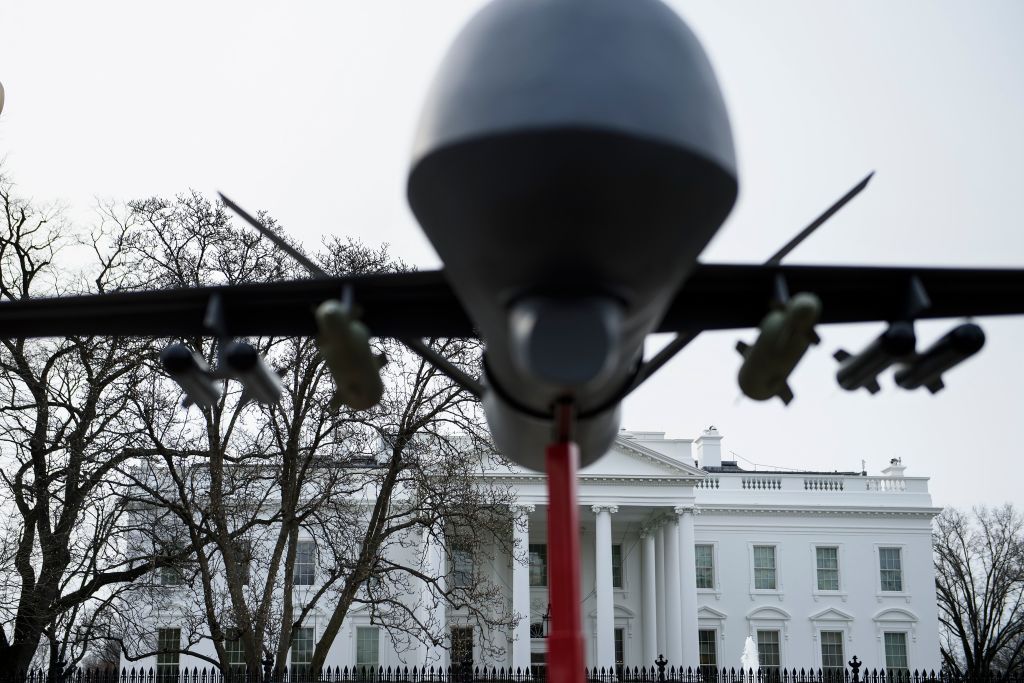Following weeks of speculation about the change in policy, the US Department of Defense issued a press release on December 4, saying US Africa Command (AFRICOM) would “reposition the majority of personnel and assets out of Somalia by early 2021”.
Withdrawal of ground troops does not necessarily mean an end to US military action in Somalia, which has included dozens of air strikes each year, many originating from bases outside of Somalia. Previous Amnesty International research has shown how these strikes have repeatedly resulted in civilian deaths and injuries, including as a result of attacks which appear to have violated international humanitarian law.
“Whether or not US ground troops leave Somalia, AFRICOM must immediately implement a strategy to ensure that it does not abandon any progress made towards accountability for US military actions – including their reporting on civilian casualty allegations,” said Deprose Muchena, Amnesty International’s Director for East and Southern Africa.
“Regardless of having boots on the ground or not, AFRICOM still must ensure justice and reparation for the civilian victims of violations of international humanitarian law and their families. And if air strikes continue, AFRICOM must ensure they take all feasible precautions to spare civilians.”
Ramping up the US air war
Since President Trump came to power in 2017, AFRICOM has ramped up its air war in Somalia, carrying out a total of 196 air strikes, using both drones and manned aircraft. According to the NGO Airwars, this included 38 strikes in 2017; 48 strikes in 2018; 61 strikes in 2019; and 49 strikes so far this year.
Amnesty International has investigated nine US strikes in Lower Shabelle, Galgudud and Middle Juba regions since 2017 and found 21 civilians were killed and 11 injured, including many as a result of apparent violations of international humanitarian law.
Besides civilian casualties from these strikes, the wider conflict – in which the armed group Al-Shabaab poses an ever-present threat to civilians – has killed thousands of civilians and displaced hundreds of thousands. According to the United Nations, at least 295,000 people have left Lower Shabelle so far this year, many of them fleeing conflict and insecurity.
Most end up in internally displaced persons camps in or near Mogadishu, where they risk exploitation and abuse, including sexual violence. Women and children are particularly vulnerable to abuse, marginalization, and exclusion.
Steps towards accountability
Since April 2019, following investigations and advocacy from Amnesty International, AFRICOM has admitted to killing five Somali civilians and injuring eight others in four separate air strikes. None of the families or victims have been compensated by the US or Somalia governments.
Then, in April 2020, AFRICOM published its first quarterly assessment of civilian casualty reports – the first glimmer of transparency in more than a decade of its military operations in Somalia.
“These welcome steps show that, when confronted with credible reporting of the facts on the ground – which bolster what families of the victims have long been saying – AFRICOM is capable of investigating and reporting on civilian casualties. Now the US government must take the next steps and ensure that victims of violations and their families see justice and reparation,” said Deprose Muchena.
“The troop withdrawal must not derail this momentum. ‘Out of sight, out of mind’ is not a concept that exists in international law, and AFRICOM has an ongoing duty of care to the civilians impacted by its operations.”
For more of Amnesty International’s reporting on civilian casualties from US air strikes in Somalia, please see:
- Zero accountability as civilian deaths mount in Somalia from U.S. air strikes (news, March 30, 2020)
- U.S. military shows appalling disregard for civilians killed in Somalia air strike (news, September 30, 2019)
- The Hidden U.S. War in Somalia (report, March 19, 2019)
- Plan to Pull U.S. Troops from Somalia is Cold Comfort Amid Civilian Toll of Air War (op-ed, October 31, 2020)
Media contact: [email protected]

